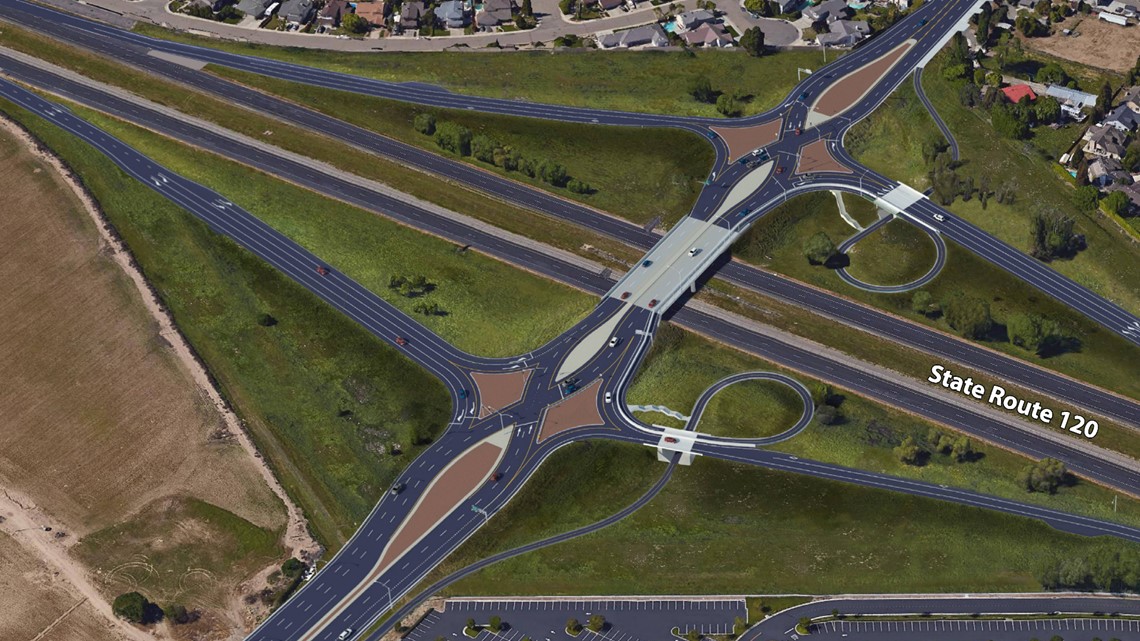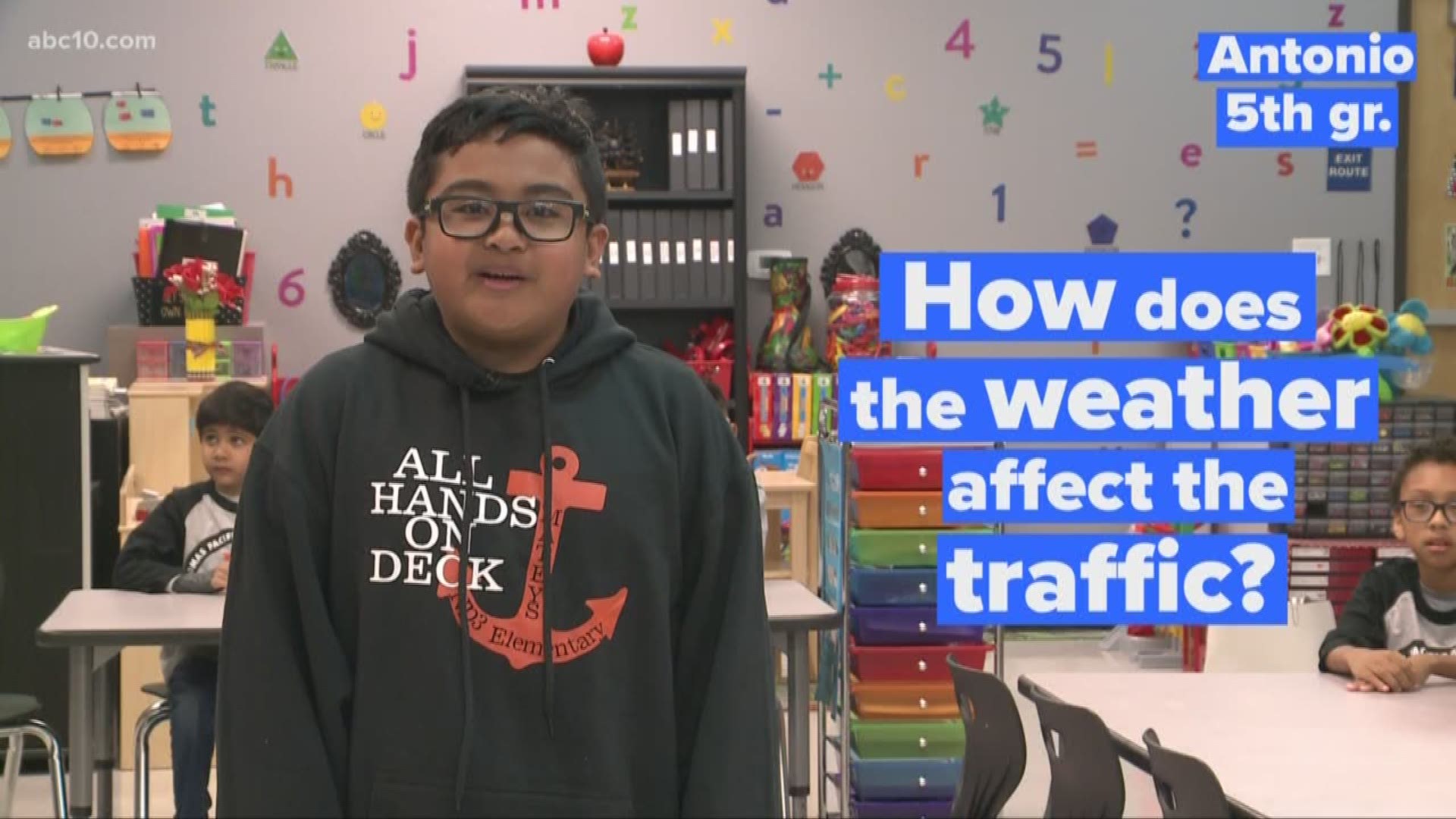MANTECA, Calif. — An innovative traffic design, noted as the first of its kind in California, is coming to the City of Manteca.
It's called a Diverging Diamond Interchange (DDI), which will essentially make an intersection more "stop and go." For Manteca, that intersection will be Union Road and Highway 120.
“Half the time it [traffic] goes one way. Half the time it goes the other," said Mark Houghton, public works director for Manteca. "It allows a lot more efficiency for moving cars through the intersections, so you don’t get all the backups you get in a traditional intersection.”
The innovative intersection is a boon for the city. It saved them millions in construction costs by letting them keep their current structure and it also makes one of their most heavily traveled intersections safer, Houghton said.
What is a Diverging Diamond Interchange?


Generally, a DDI brings free left turn movements onto and off-of a highway. The first of its kind design in California is in the hands of Sacramento company Mark Thomas, which they find as an exciting effort.
“We haven’t done a diverging diamond," said Matt Brogan, principal-vice president at Mark Thomas. "This is the first one in the state, but we have been doing transportation infrastructure in California for almost 100 years.”
How it works for cars:
A DDI has drivers enter from the right side of the road, cross to the left side as they go through the interchange, and cross back again to the right. This criss-cross pattern keeps traffic moving through the intersections and provides free left turn movements for drivers onto and off-of the freeway.
“It’s a significant safety improvement with the interchange type,” Brogan said.
A traditional interchange has 26 potential conflict locations, or potential crash areas, according to Brogan. This designs cuts those locations nearly in half to 14, due to eliminating broadside left turns. The design even has the potential to reduce speeds of possible collisions that do happen.
How it works for cyclists and pedestrians:
The improvements aren't just for drivers either, the new structure will allow cyclists and pedestrians to move from one side of HWY-120 to the other side with no potential crash locations on the roadway.
“For bicycles and pedestrians there are no conflict points with any vehicles for this design. [It's] very safe for bicycles and pedestrians too,” Brogan said.
He added that there would be a separate pathway for bikes and pedestrians that goes under the freeway ramps, back up to the bridge, and crosses back underneath the freeway ramps.
What's the goal?
Houghton said the project is happening because it checks all the boxes the city needed.
Due to the city being able to save the current structure at the interchange, it saves them millions in construction costs and in modifications to the highway. It also gives them a long term solution to traffic flow and efficiency at the Union and HWY-120 intersection.
Part of that need stems from the need for traffic safety improvements from a growing area. While traffic signals at the ramp intersections have improved the situation, the interchange is considered by Caltrans to be operating at "unacceptable levels of service" during a.m. and p.m. peak hours with long delays for drivers in the near term.
However, one thing the project won't be fixing is the cut-through traffic from HWY-120. Houghton said that is a different issue altogether, and it would probably only see improvement from capacity opening up on HWY-120.
The goals are ultimately to improve traffic flow between the north and south parts of the city for vehicles and make the area accessible and safer for cyclists and pedestrians.
“I just think it’ll be a great fit for the city and people are going to be amazed when it opens [at] how smoothly it operates and how they drive through it,” Houghton said.
While shovels have hit the ground for the project, a definite completion date isn't available. The project is projected to finish in December 2020, according to Caltrans. But Houghton said completion will depend on PG&E replacing poles in the area, which isn't expected until January.

